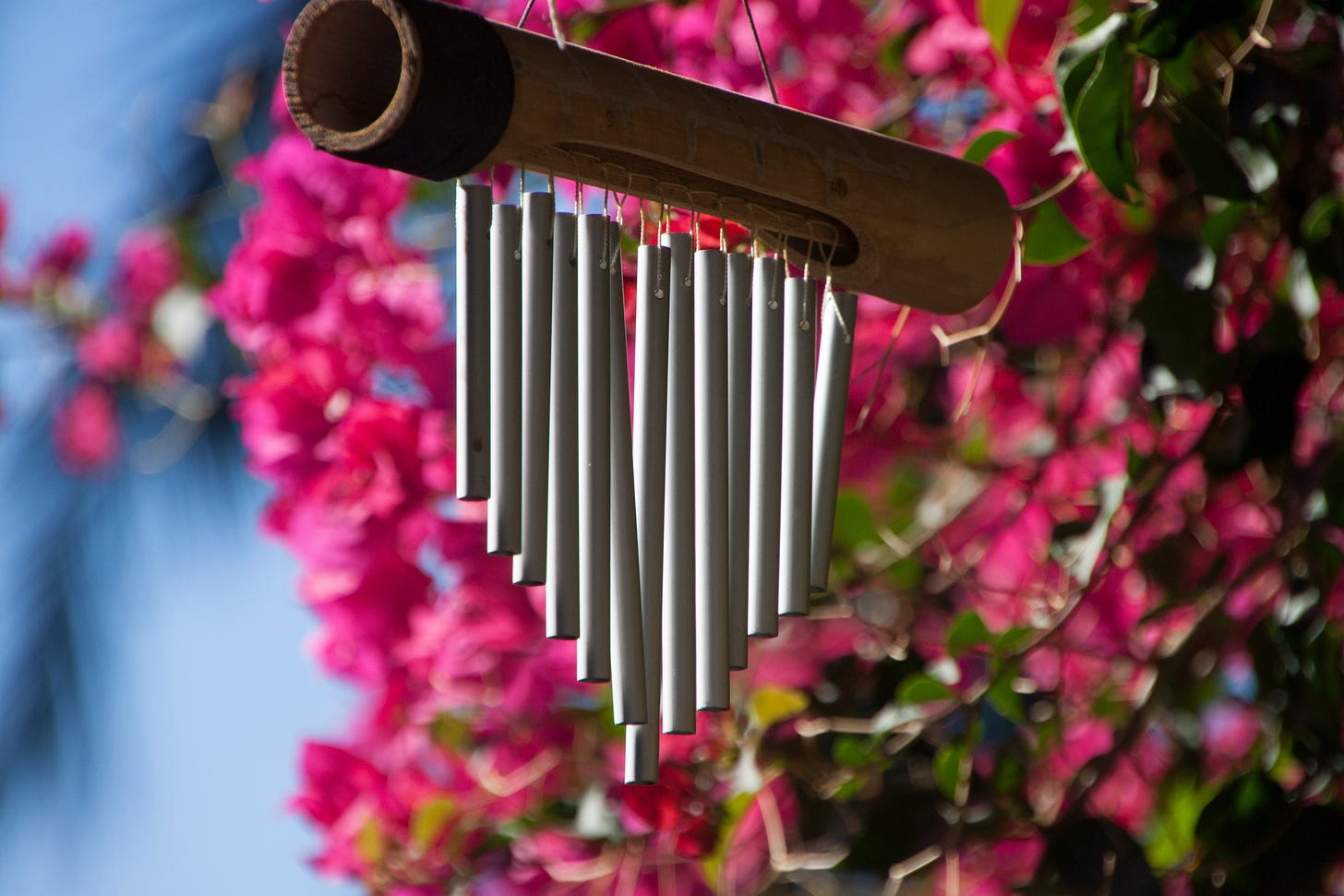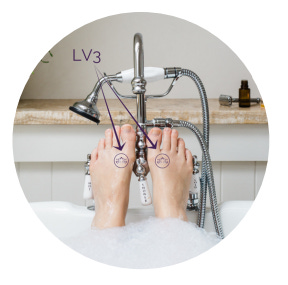Feeling Stuck and Overwhelmed in Perimenopause?
Reset with these with Traditional Chinese Medicine protocols
Does perimenopause feel like it’s dragging on forever, leaving you stuck, overwhelmed, or emotionally stagnant? You’re not alone.
In Traditional Chinese Medicine (TCM), the journey through perimenopause and into early post-menopause is seen not just as a hormonal shift, but as a profound, 21-year transformational life stage. Beginning in our mid-thirties and continuing into our mid-fifties, this transition spans the final three 7-year cycles of a woman's life before entering the "Second Spring," a revered phase of elderhood and renewed wisdom.
This year, the energy may feel even more intense. According to Chinese astrology, 2025 is the Year of the Wood Snake time marked by shifting ground and uncertainty. These energetics can amplify feelings of restlessness and stagnation.
To help you navigate this time, I’ve curated three supportive protocols inspired by Yang Sheng (nourishing life principles), Feng Shui, and Qigong. Together, they’re designed to help you clear stagnation, calm the mind, and restore vitality to your body, spirit, and mind.
Where do Feelings of Stuckness and Overwhelm Originate from Menopause?
In Traditional Chinese Medicine (TCM), menopause is viewed as a natural transition in a woman’s life and is often associated with imbalances in the body's energy (Qi) and Yin-Yang.
Menopause is considered a time when a woman’s Yin energy (cooling and nourishing) declines. Kidney Yin Deficiency is a common diagnosis, indicating a lack of nourishment and cooling Yin energy. Symptoms may include hot flashes, night sweats, dryness, and restlessness.
But in today’s Yang-dominated culture, where so many women are overworking, overthinking, and struggling to maintain consistent good diets and exercise regimes, and often have consumption patterns that impact their yin-yang balance (social media, alcohol, sugar), many of TCM colleagues and I see other imbalances in particular Liver Qi stagnation, Spleen Qi deficiency, and Yang excess that make perimenopause and menopause more of a struggle than Kidney Yin deficiency alone.
Liver Qi Stagnation refers to an imbalance in the flow of Qi in the liver meridian, which can lead to irritability, frustration, and emotional instability, contributing to feelings of resentment, anger, and feelings of stuckness in various areas of our lives.
Spleen Qi Deficiency, in Chinese Medicine, your Spleen Qi is the engine behind how you process everything, not just food, but thoughts, emotions, and even your sense of direction in life. The Spleen is home to the Yi, the spirit of intellect, focus, and intention.
When your Spleen is strong, you feel clear-headed, grounded, and capable. When it’s weak, you might find yourself stuck in overthinking, low energy, and worry that loops on repeat. Sound familiar?
Here are a few signs your Spleen Qi might be a little out of balance:
You’re bloated or tired after meals
You crave sugar or white carbs (especially when stressed)
You overthink everything
You feel foggy or ‘blah’
You’re emotionally drained, even after rest
Yang excess can also be a relevant consideration in TCM. Menopause is often associated with changes in Yin and Yang energies, and an imbalance in these energies can lead to various symptoms. Most often in this case, yang is not being anchored due to yin deficiency.
I covered some of this in my post about the Heart.
The resultant menopause symptoms can include
You have raging hot flashes and drenching night sweats.
You feel restless and irritable at the slightest thing
You find it hard to fall asleep and stay asleep- classic insomnia
You have heart palpitations and elevated blood pressure
So what can you do to restore balance?
Protocols for Releasing Stuckness and Restoring Balance
Liver Qi Stagnation
If you’re flying off the handle at the slightest thing, can’t motivate yourself, then your best approach is relieving feelings of irritability and stuckness associated with Liver Qi Stagnation.
These can include:
Massaging liver points like Tai Chong (Liver 3). Located on the foot, Taichong is a versatile point used to regulate Liver Qi and balance emotions. It can be effective in managing mood swings, irritability, and stress associated with menopause.
Putting up wind chimes, which, according to Feng Shui principles, move stuck Qi,
Practicing Qigong moves like clearing the dantians that I teach within Radiant Lotus Women’s Qigong, which help to move Qi in all energy centres (dan tians) of the body and other areas where energy can become stuck like the solar plexus and the throat.
It may be worthwhile working with an herbalist to explore using Liver Qi moving herbal formulations like Jia Wei Xiao Yao Wan
Spleen Qi Deficiency
Feeling foggy, heavy, tired, and unable to tackle your to-do list? Reset protocols include food, delicious food, and a big dose of decluttering, not just your cupboards but also your phone, review your social media, and even so-called friends. You can check my podcast interview that I did with the Declutter Hub here.
Some of the best foods to weave into your diet that are warming, nourishing, and grounding, just what the Spleen loves, include:
Vegetables - sweet potato, carrots, squash, pumpkin, parsnips
Legumes - red lentils, chickpeas, adzuki beans
Protein - chicken, turkey, eggs and white fish like cod
Spices - ginger, turmeric, cinnamon, cardamon and cloves
Yang Excess
If your mind feels anxious and scattered, then BAÑOS FLORALES bathing rituals that include flowers can be very supportive. Choose the flowers, herbs that match your needs physically, mentally, and spiritually.
Ways to prepare:
Traditional: uses fresh flowers and garden herbs placed in a bucket of water, and sprinkled or poured around the body for energetic cleansing.
Make a large pot of tea on the stovetop using the herbs of choice, and pour into a warm bath.
Place fresh and/or dried herbs, essential oils, crystals, rocks, salts, etc, directly into bath tub.
Immerse in the warm water, maybe also accompanying the bath with some incense, which has long been used in Chinese rituals and medicine to settle the mind and invite the spirit to rest.
I’d love to hear what other rituals or protocols you have to release feelings of stuckness and overwhelm.






